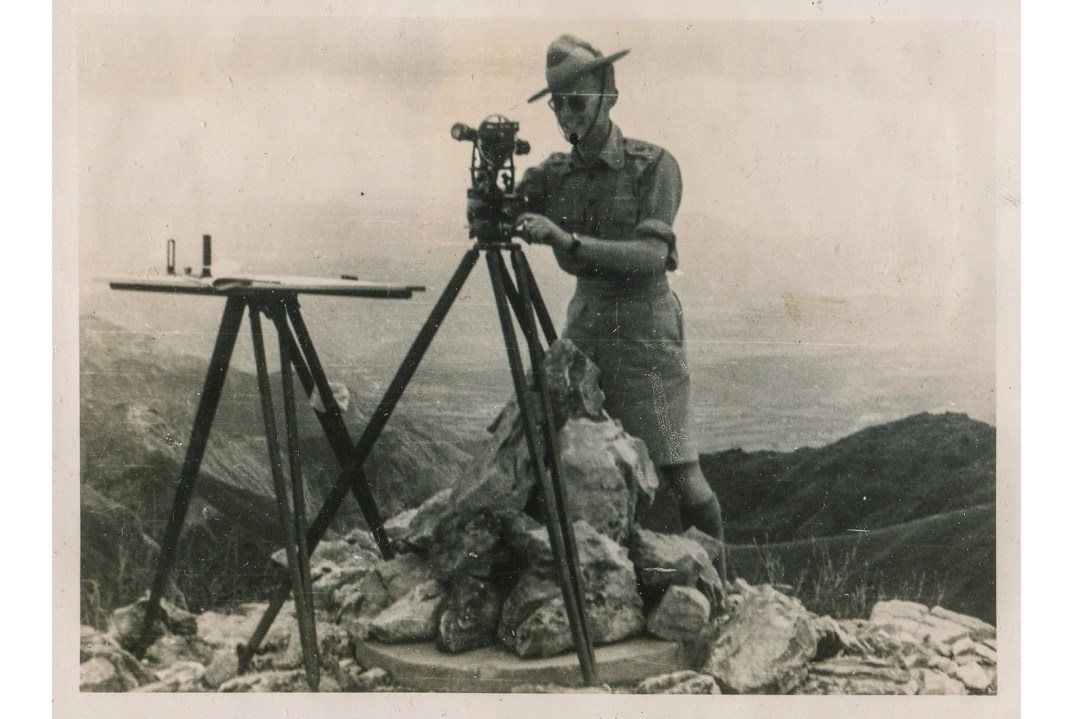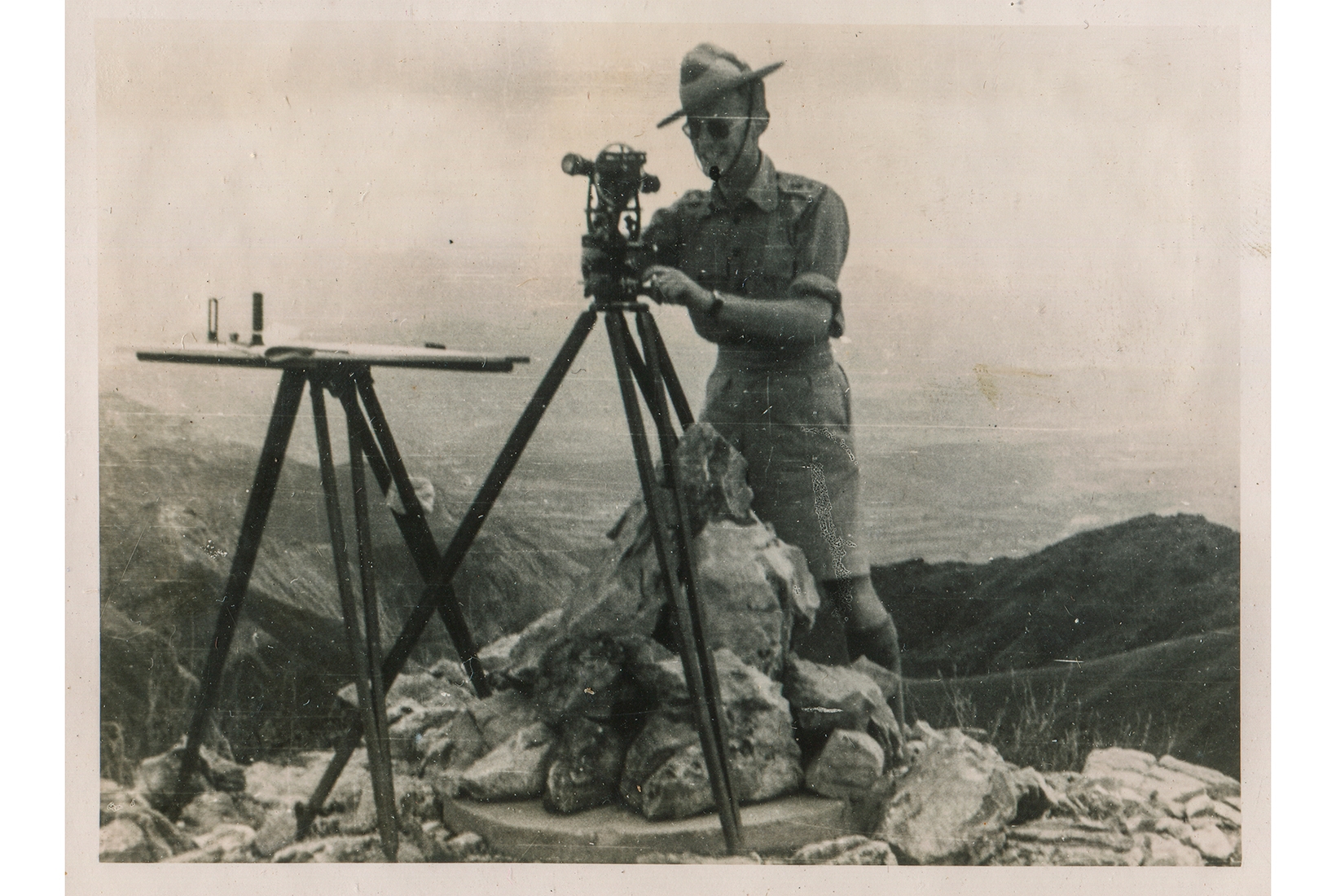First shown on BBC Scotland, Harry Birrell Presents Films of Love and War (BBC4, Wednesday) was the documentary equivalent of a William Boyd novel, showing us a 20th-century life shaped by 20th-century history. The programme was made by Harry’s granddaughter Carina, who’d been eight when he died, and known him only as ‘a lovable, frail, blind old man’. But then she came across 400 carefully labelled reels of film in the family shed, together with an equally well-organised collection of diaries.
Exactly — or even vaguely — when this discovery took place was one of many details that Carina tantalisingly failed to disclose. (Now and again, we did see her dusting off old cannisters with a look of surprise, but this felt distinctly like re-enactment.) Nonetheless, the result was a wonderfully intimate and affecting piece of television — and one that certainly did her old grandad proud.
The main reaction of some soldiers to the coming of peace is disappointment, or even despair
Born in Paisley in 1918, Harry never saw his father, who was killed in the last month of the first world war, leaving his mother to bring up two children on a widow’s pension. Harry’s social background and education were among the other tantalisingly withheld details, but someone somewhere was evidently rich enough to give him a cine camera for his tenth birthday. And from then on, he appears to have one sutured to his hand for the rest of his life.
In the circumstances, some of his most resonant footage came from 1938 when Harry was training to be a surveyor in London. As we watched the city partying away, we also heard an extract from a 1940 diary in which he looked back on the excitement of that time. ‘This was London in the good old days,’ he said. ‘I wonder if they will ever come again.’
Even so, at the heart of Wednesday’s programme — and, it would seem, of Harry’s life — was the second world war. After volunteering to fight, he ended up on the border of India and Burma, where, somewhat to his embarrassment, he was given command of a battalion of Gurkhas whom he never wavered in regarding as ‘the best soldiers in the world’. Despite his pleas, though, his surveying experience meant that he never led them into battle. ‘You can fight with the theodolite as well as the rifle,’ his colonel pointed out, dispatching him behind Japanese lines to draw up maps for Britain’s reinvasion of Burma. On the plus side, this meant Harry now got to film sights few westerners had ever seen — and not the least of his skills, apparently, was for blagging colour film.
Then again, his diaries, read here by Richard Madden, were great too. As the war came to an end, Harry saw dozens of decaying Japanese corpses and in the pocket of one soldier found a picture of a beautiful woman, whom he wonderingly realised was ‘the wife of this bit of dirt and dust’. We were also reminded of something always hard to believe for those of us who’ve never been in combat: that the main reaction of some soldiers to the coming of peace is disappointment, or even despair. ‘The war is over and the excitement is dead,’ Harry reflected. ‘I seem to have little or no interest in life.’
Judging from what we’d seen by then, Harry was talented enough to become a professional filmmaker but whether he wanted or tried to was, again, not something we were told. Instead, we saw him getting married in 1953 to a woman hitherto unmentioned, and certainly not the one he’d earlier described as ‘the greatest romance of my life’ and whose photo he’d carried through Asia. We didn’t see much of his post-war filming either, beyond a brief glimpse of him horsing around with his children.
In a way, of course, the fact I’m complaining that a 90-minute programme wasn’t long enough only goes to show how riveting it was. And yet, just a few helpful sentences here and there would have been enough to banish the frustrating sense that we still needed to know more about this remarkable man.
For a while, it looked as if the biggest joke in Sky One’s new sitcom Hitmen (Wednesday) would simply be the disjunction between the inherent likeability of the reunited Mel Giedroyc and Sue Perkins and the fact that they’re playing hired assassins. As it turned out, however, there are plenty of good jokes — but that disjunction is a problem the show never quite manages to solve. Hitmen works fine when Mel and Sue are bantering away in traditional double-act dumb-and-dumber style. But whenever they actually kill people, the script can’t seem to decide whether to make it part of the prevailing enjoyable silliness or a darker, more sinister interlude — which ultimately makes for rather confusing viewing.







Comments